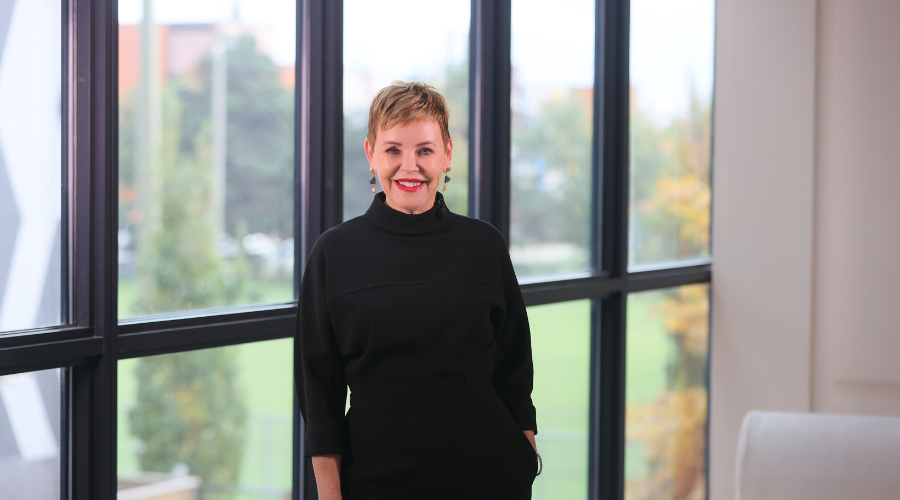A common question among older Canadian homeowners is: should you pay off your mortgage before retirement? When home prices were considerably lower, it was easier for homeowners to pay off their mortgages before they retired, and for many people “burning their mortgage” was an important step towards financial independence.
Today, with home prices having increased considerably over the last 20 years, it’s perhaps not surprising to know that a considerable number of Canadians will be carrying a mortgage into retirement. According to a survey by Royal LePage, almost one-third of Canadians planning on retiring in the next two years will still have a mortgage. This is around twice as many people as just 10 years ago.
Clearly, carrying a mortgage into retirement is becoming an increasingly common issue. But is it necessarily a problem?
In this article, we’ll explore whether you should pay off your mortgage before retiring. We’ll also compare if it’s more worthwhile to pay off your mortgage or save for retirement, and if paying off your mortgage before downsizing in retirement makes sense. We’ll also discuss the pros and cons of paying off your mortgage before retirement, circumstances when retirees should not pay off their mortgage, and the best way to pay off your mortgage after retirement.
For some Canadians, carrying a mortgage into retirement can be manageable, especially with financial tools designed for retired and retiring homeowners like the CHIP Reverse Mortgage, which can help ease the strain of monthly payments.
Can I pay off my mortgage before retirement?
Yes, you absolutely can. It should be quite feasible if you bought your home a considerable time before retiring (typically 25 years or more). In fact, many people who bought their home in their 20s or 30s would be able to pay off their mortgage some time before retiring.
However, if you bought your home later in life, or increased your mortgage over the years to take advantage of your home equity (to pay for renovations, for example), then you might not be able to pay off your mortgage before retiring.
If paying off your mortgage before retirement isn’t realistic, you could still lighten your financial load in retirement by using tools like a Reverse Mortgage or a HELOC.
The pros and cons of paying off a mortgage before retirement
While you might assume that it makes sense to pay off your mortgage before retirement, it’s not as black and white as you might expect. Let’s take a look at the benefits of paying off your mortgage before retirement, as well as situations when retirees should not pay off their mortgage.
The benefits of paying off your mortgage before retirement
Free up more retirement income: should you pay off your mortgage before retirement, you would have considerably more disposable income. Mortgage payments are typically a household’s largest expense; without this outlay, your retirement could be much more comfortable. If you’re wondering, should you pay off your mortgage immediately before retiring, if you can, it would certainly improve your cash flow.
Save in interest payments: the interest on a mortgage can be considerable. By paying off your mortgage sooner rather than later, you could potentially save thousands in interest.
Boost your home’s equity: by paying off your mortgage, you’ll maximize the equity in your home, which would give you more borrowing options during retirement.
Have the peace of mind of knowing you own your home outright: for many people who are determined to pay off their mortgage before retiring, it brings a sense of security. They know they won’t have to worry about losing their home for missing mortgage payments.
The disadvantages when you pay off your mortgage before retirement
You limit your investment options: when you focus on paying off your mortgage faster, you could miss out on investment opportunities that could pay a considerably higher return than the mortgage interest rate you’re paying.
You pay off less high-interest debt: if you put more money into paying off your mortgage, you could end up carrying more in high-interest debt. This could mean you’re carrying balances with 20% interest rates or more, when your mortgage has an interest rate below 5%. This might not make financial sense.
You can’t save as quickly: prioritizing your mortgage payments could take away money that would boost your savings. This could include your emergency savings, which are essential for keeping your budget (and financial plan) on track. If you’re wondering, should I pay off my mortgage or save for retirement, you shouldn’t let fast-tracking your mortgage payment derail your retirement savings plan.
You could miss out on tax savings: if you’re self-employed and work from a home office, you can deduct some of the interest from your mortgage payments from your taxable income.
What to consider when paying off mortgage before retirement
If you’re wondering, is it best to pay off your mortgage before retiring, you should ask yourself these questions before making a decision:
How valuable is peace of mind? If it’s important to know that you’ll own your home outright once you retire, then paying off your mortgage may need to be a priority. If you’re comfortable with still having a mortgage, there may be better ways to use your extra money.
Could you make more money than your mortgage is costing you? This is an important one for those people who wonder, is it better to pay off your mortgage or invest in retirement? When mortgage rates are low (below 5%, for example), it might be better to put more money into investing. Some people might feel that it makes more sense to invest in the stock market, which has historically provided returns of over 10% per year than use that money to pay off a mortgage costing around 4% in interest annually.
Is your retirement income likely to be quite low? Many Canadians retire with a fairly small retirement income. If this is the case, it could make a lot of sense to pay off your mortgage before retirement; you’d be freeing up a lot of your limited income, meaning a more comfortable retirement.
When should you not pay off your mortgage before retirement?
Sometimes it makes financial sense to prioritize other financial concerns, other than paying off your mortgage faster. This could certainly be the case for anyone who:
· Is carrying large amounts of high-interest debt.
· Has very little or no savings.
· Has insubstantial retirement savings.
· Could potentially make higher returns by investing than they are paying in mortgage interest.
The desire to pay off your mortgage before retiring could blind you to other financial considerations, which could ultimately lose you money in the long run. And once you’re retired, it might not make sense to pay off your mortgage faster if you have health issues that are costly, or if your retirement income is simply not enough.
What’s the best way to pay off your mortgage after retirement?
We’ve answered the question, should you play off your mortgage before retirement? While for many people it is preferable to pay it off, as we’ve seen, for almost a third of Canadians, it’s impossible to do this before retiring. For many retirees, the solution isn’t rushing to pay off the mortgage but restructuring it in a way that works for a fixed income — and that’s exactly what a CHIP Reverse Mortgage is designed to do.
A reverse mortgage works like a conventional mortgage, except you don’t have to make regular mortgage payments.
Therefore, if you used a reverse mortgage to pay off your existing mortgage, you wouldn’t have any further mortgage payments to make during your retirement. This would free up a lot of your income, so you could enjoy a far more comfortable and less financially stressful retirement.
You only pay back what you owe on a reverse mortgage when you sell your home or move out, which makes it an excellent choice for many of the 47% of Canadians approaching retirement who don’t plan on downsizing, instead preferring to stay in the home they love. Find out how much you could qualify for with a CHIP Reverse Mortgage by calling us at 1-866-522-2447 or by using our reverse mortgage calculator. If you’re retired and still have a mortgage, this could help provide you with the kind of retirement that you always dreamed of.







